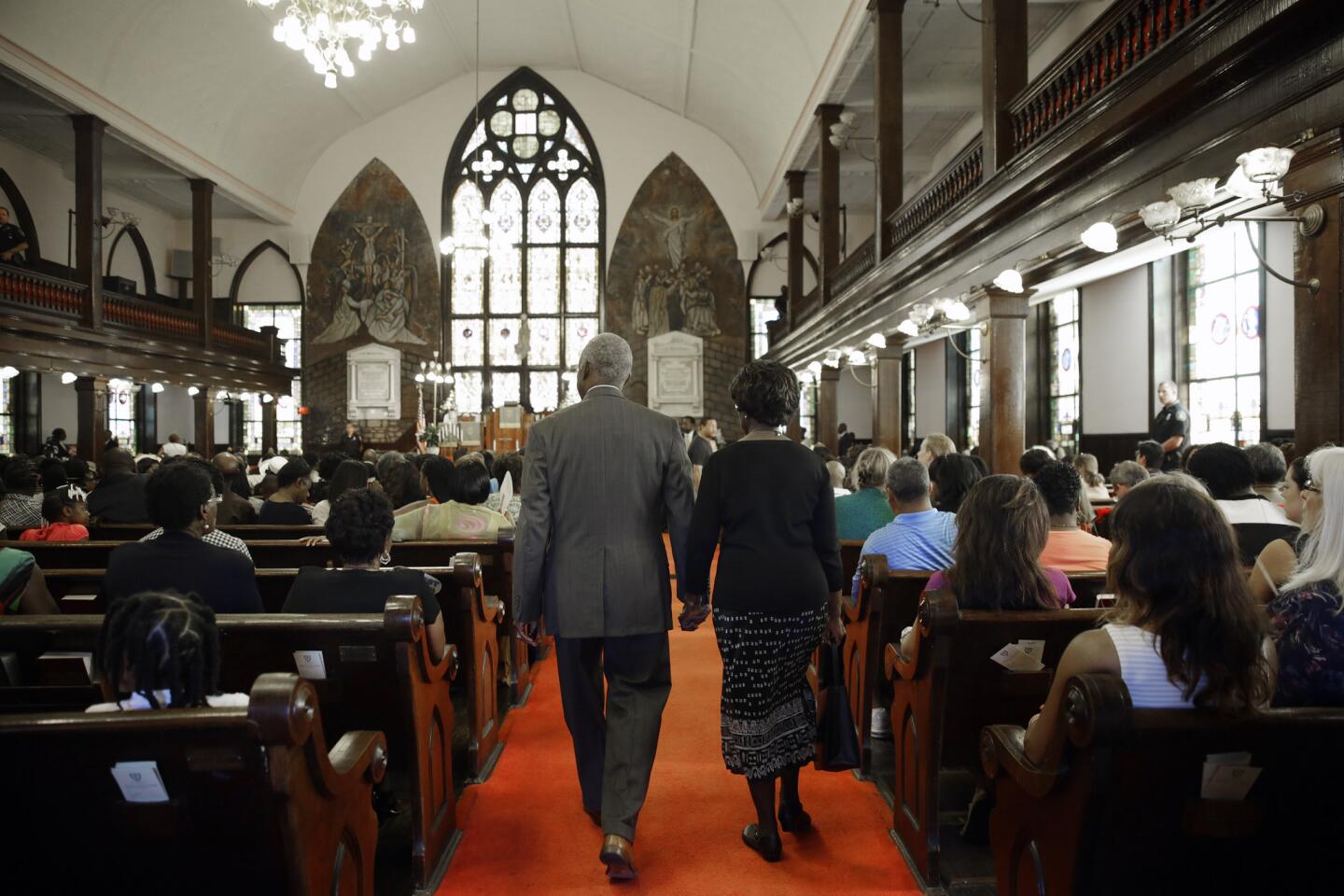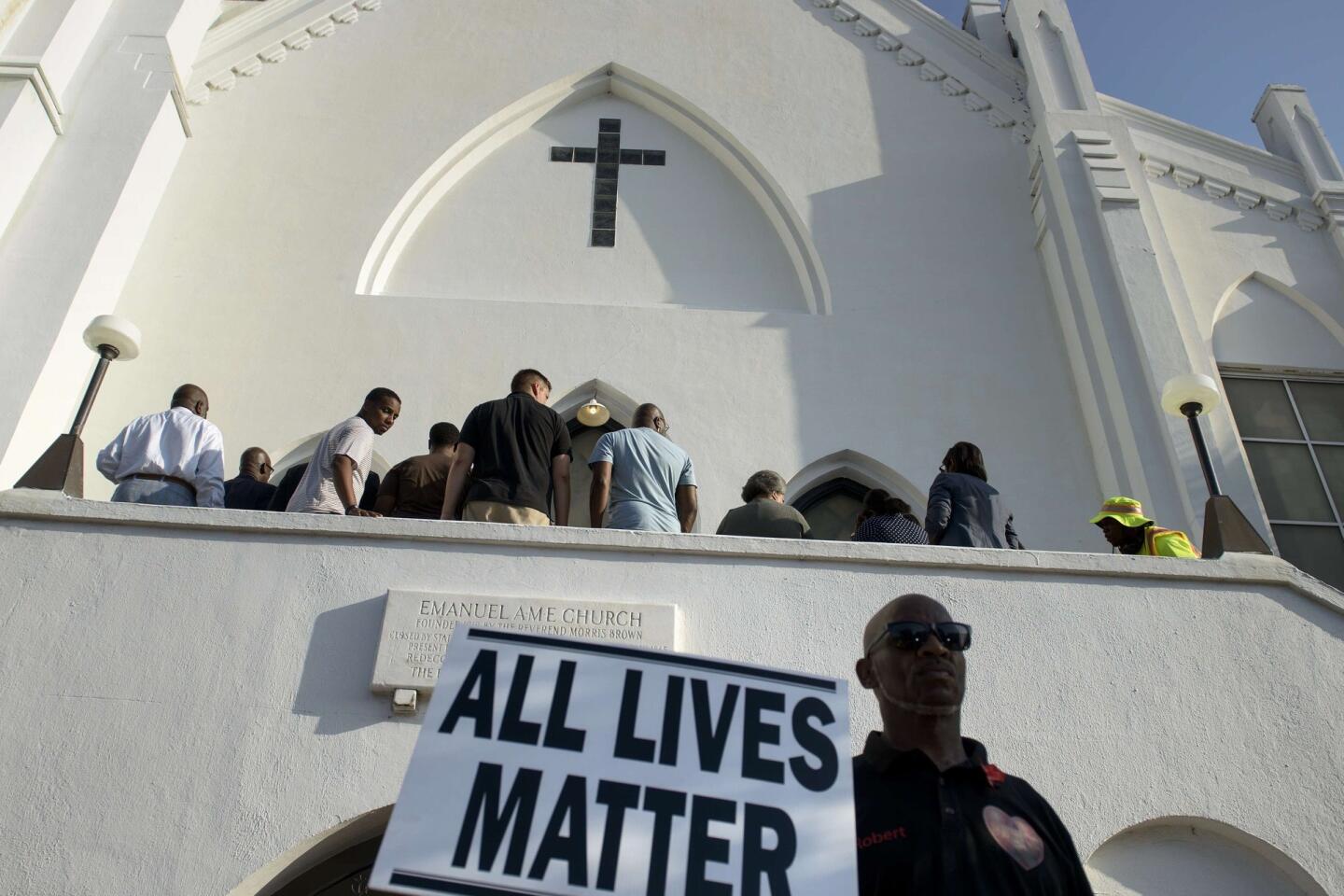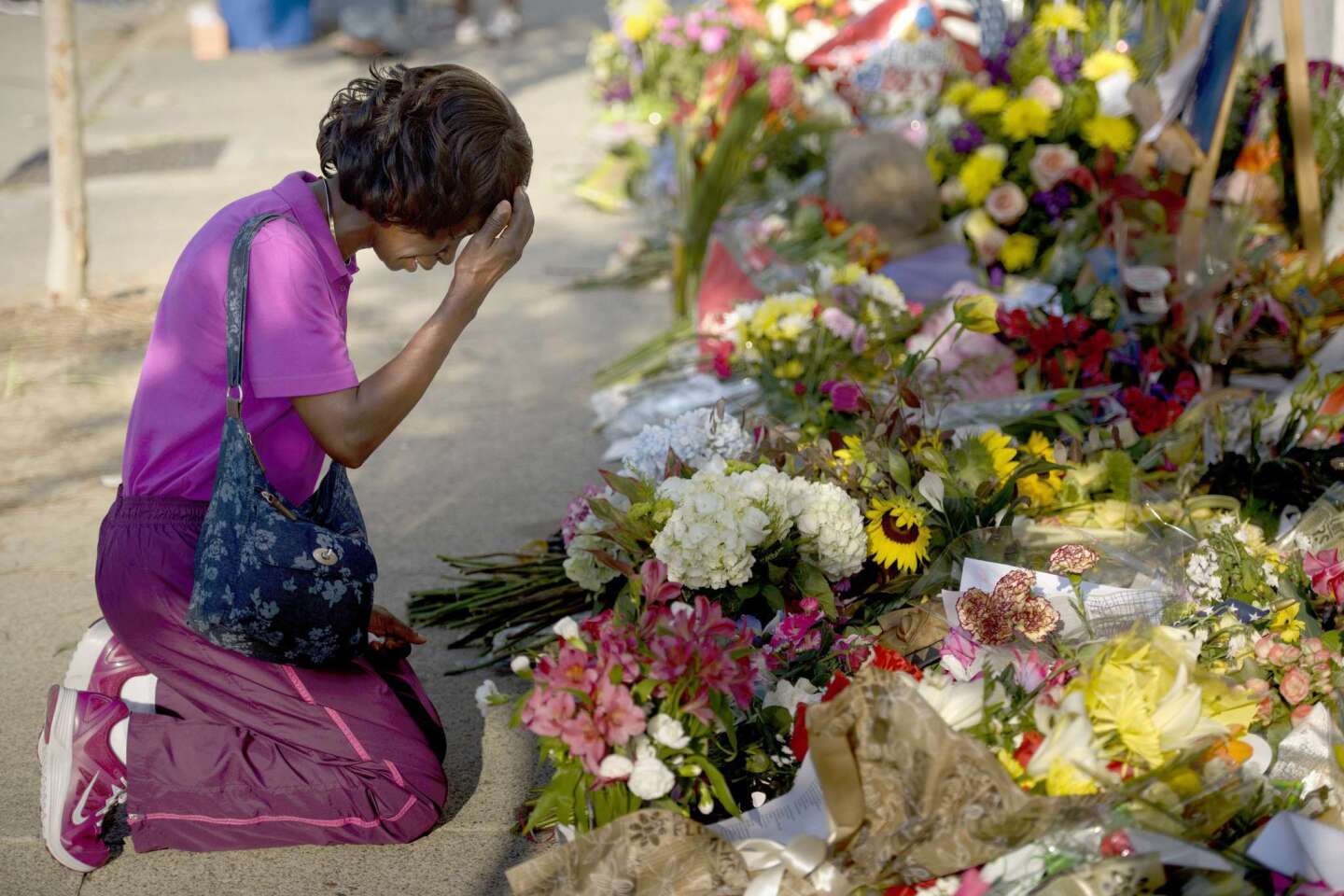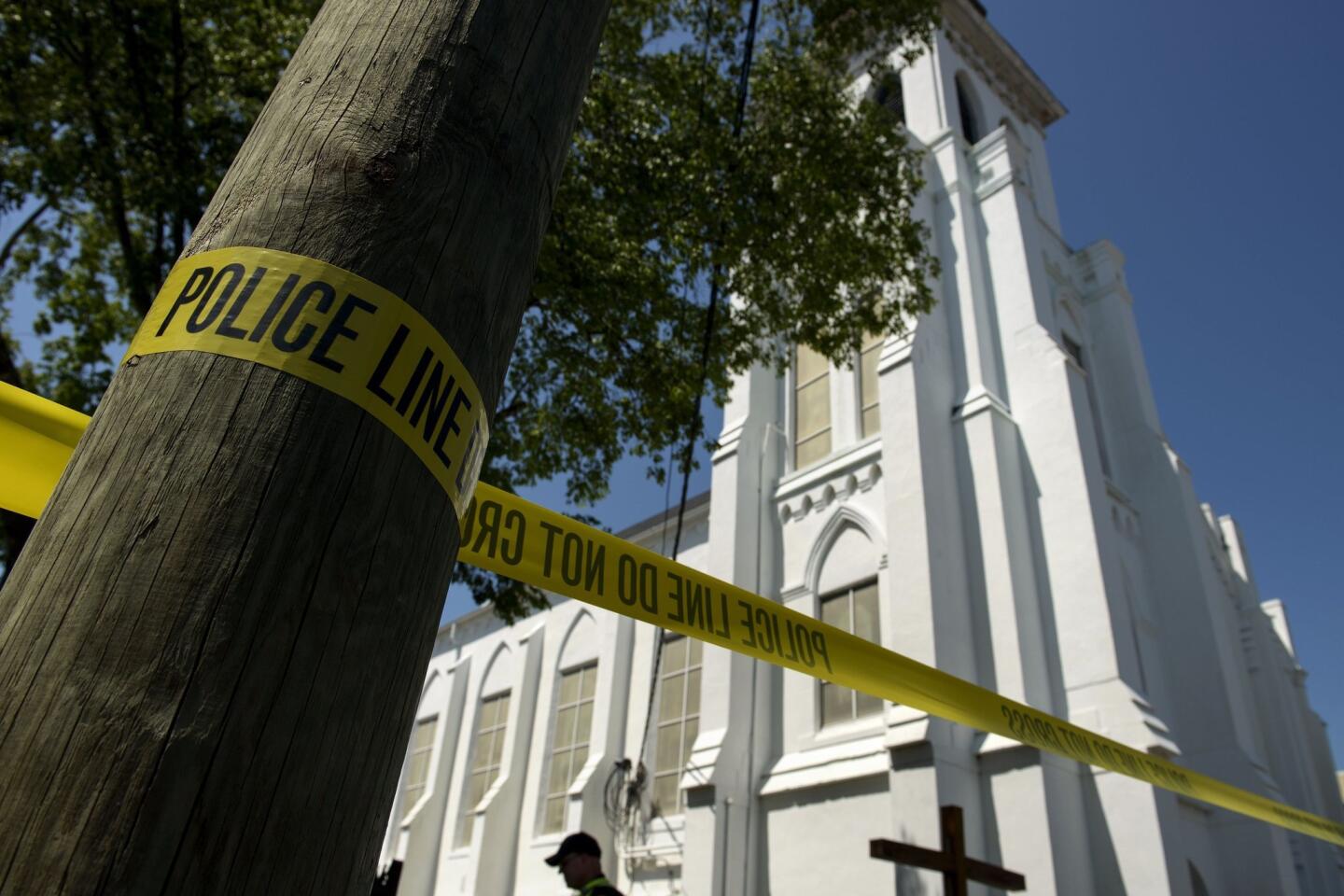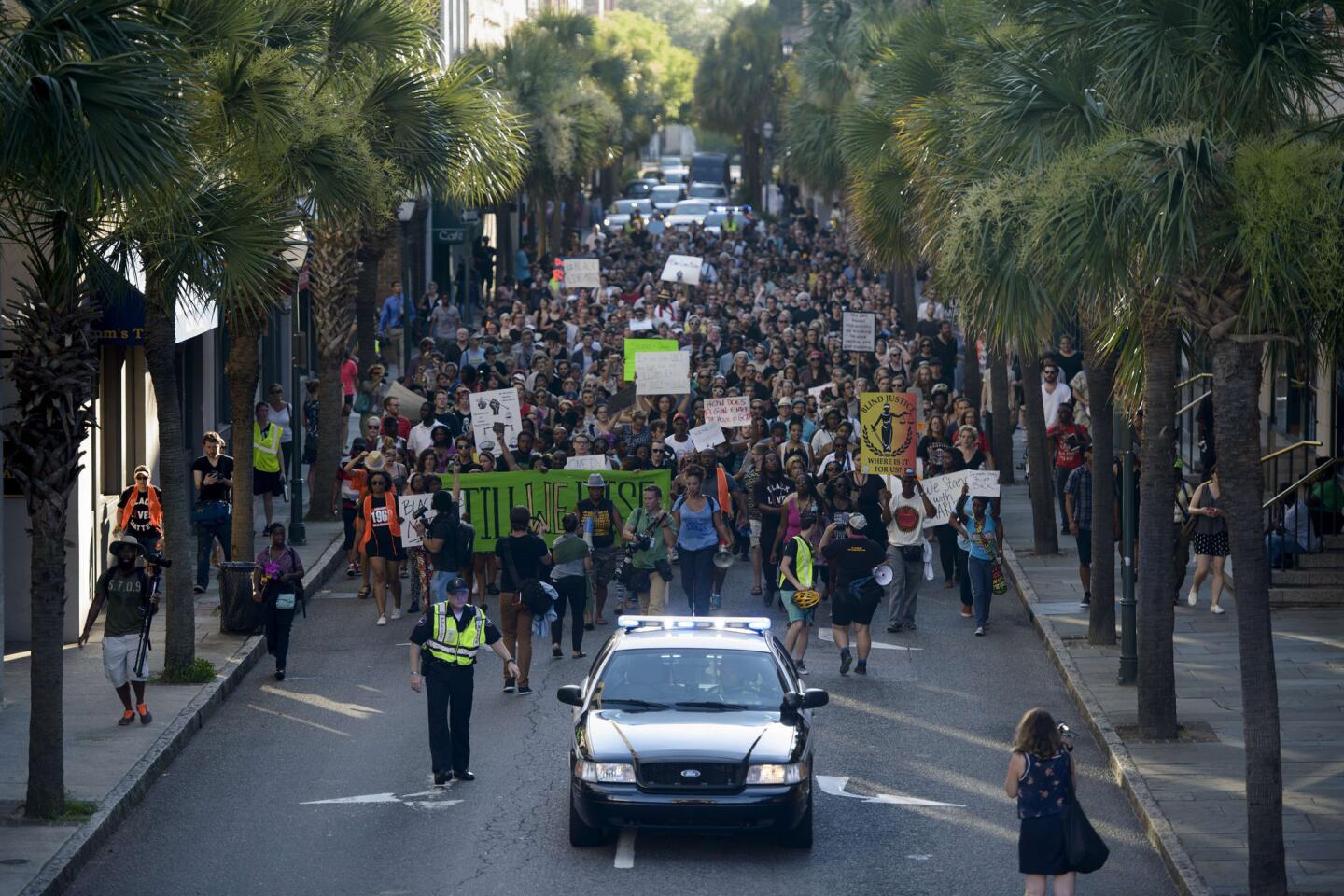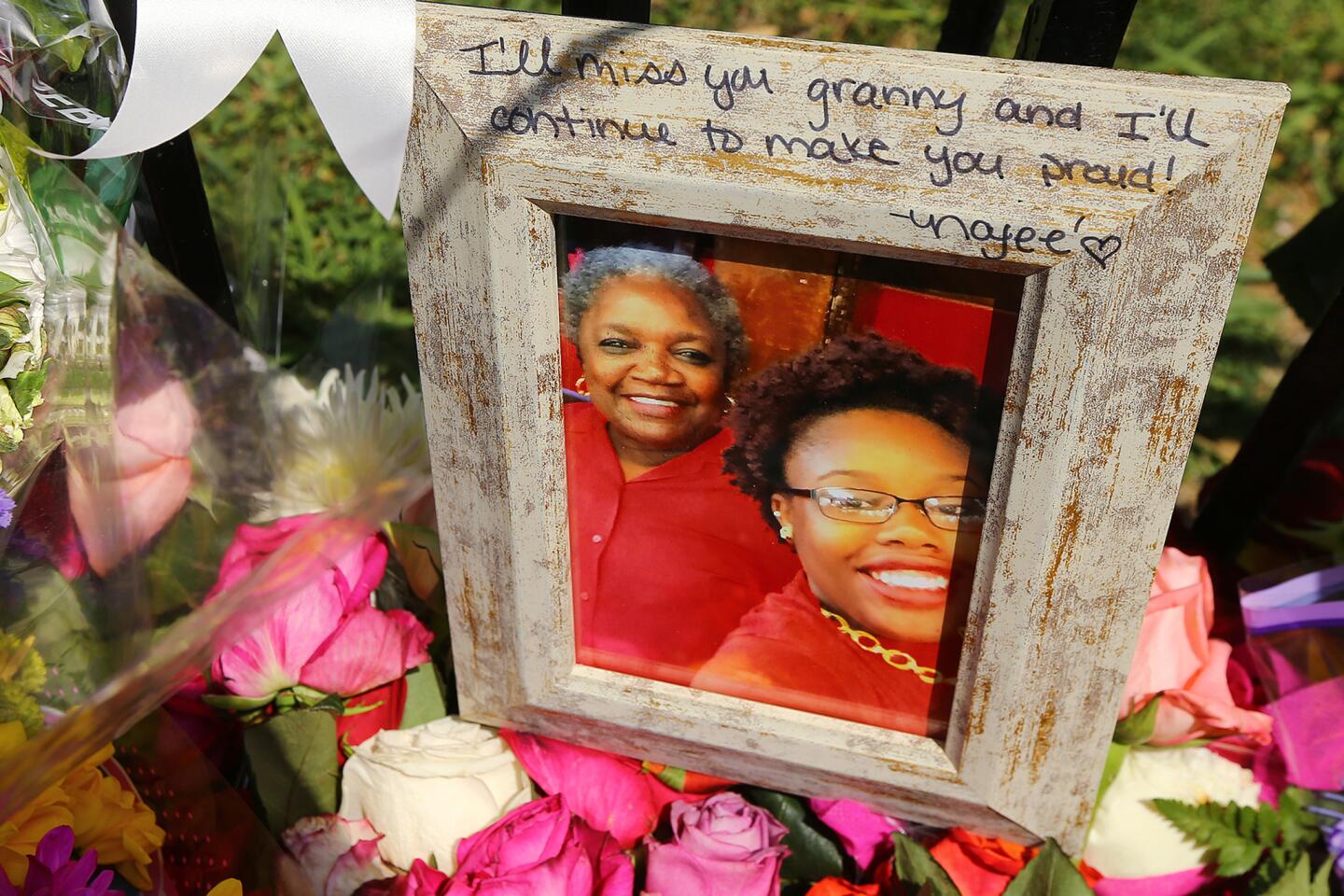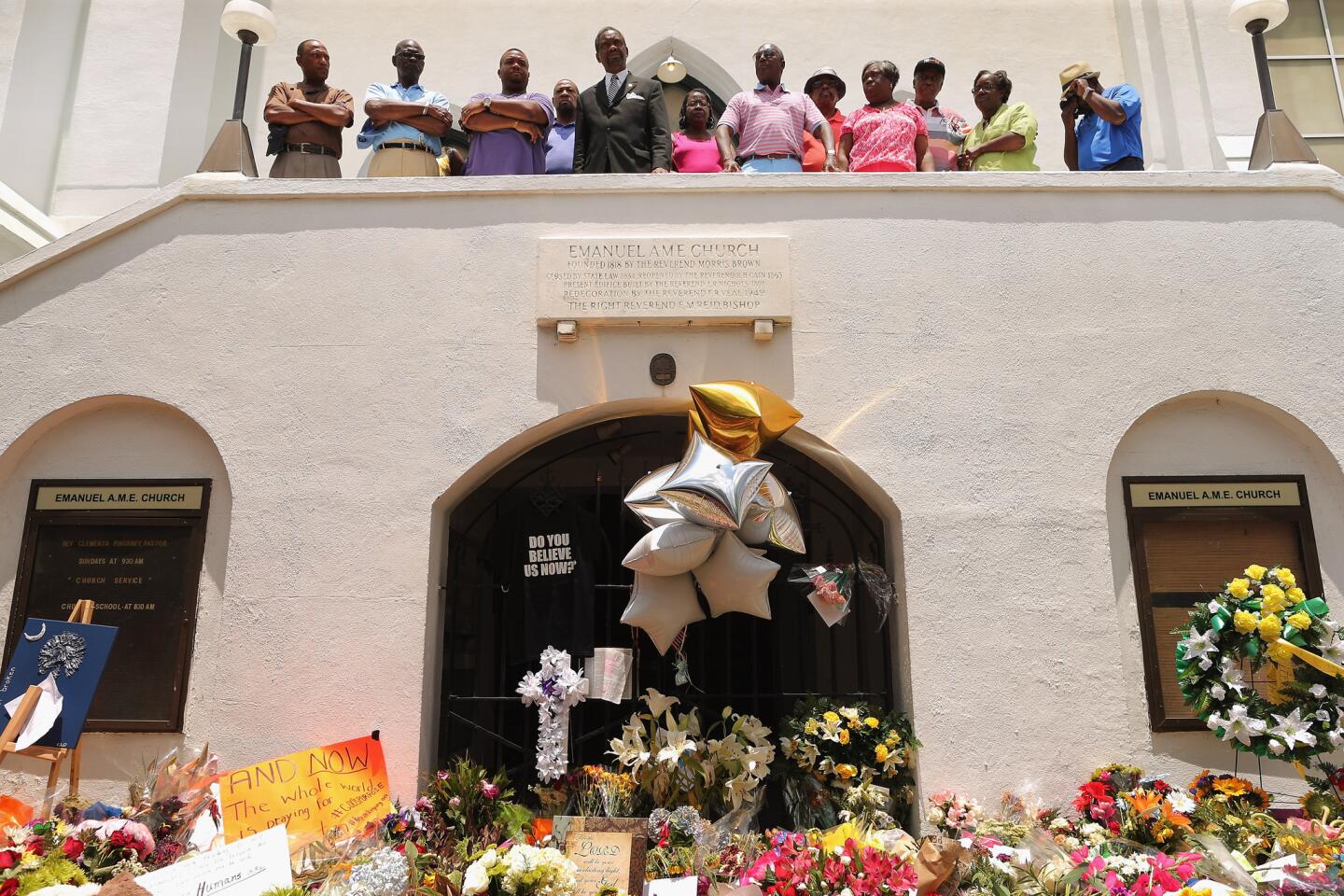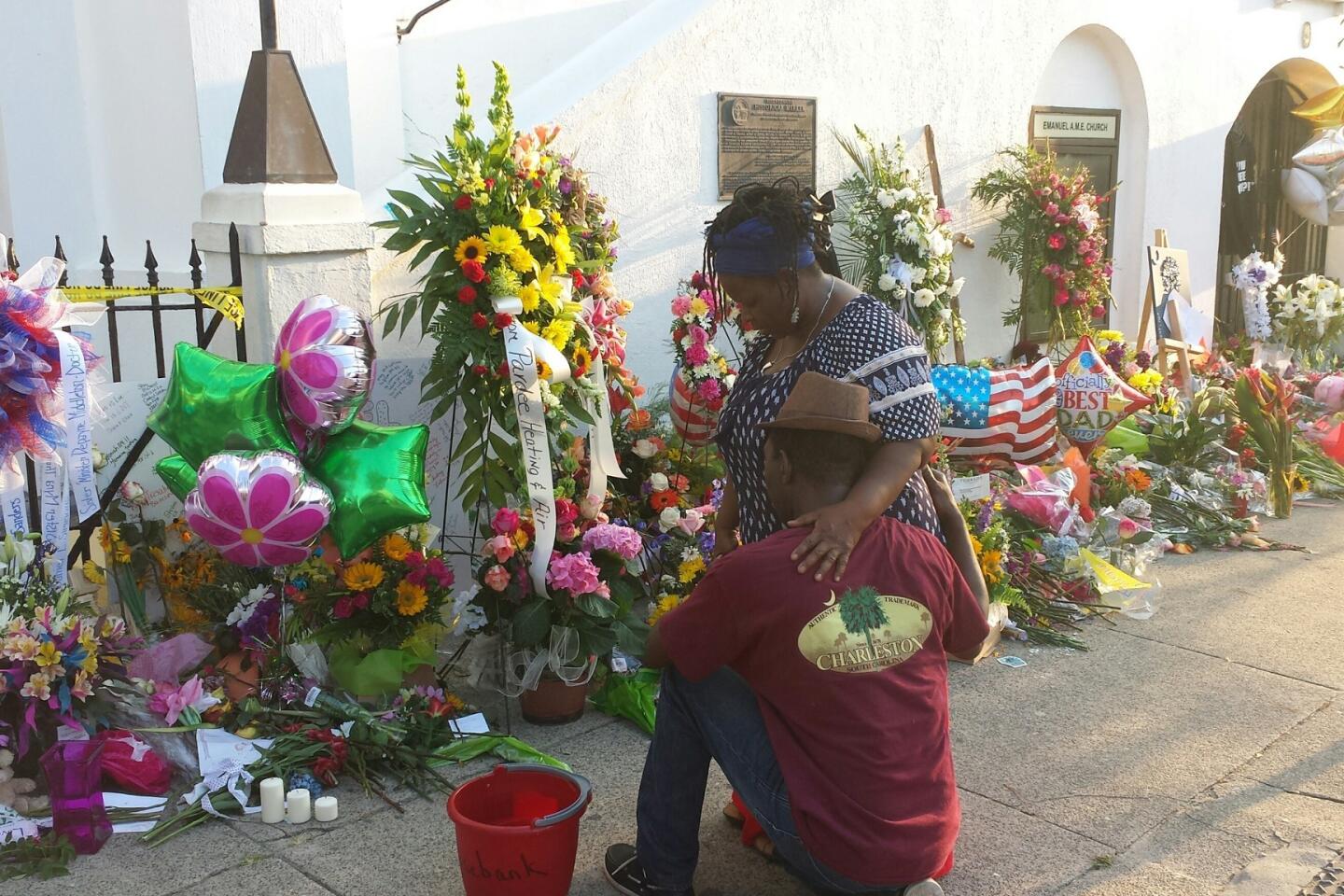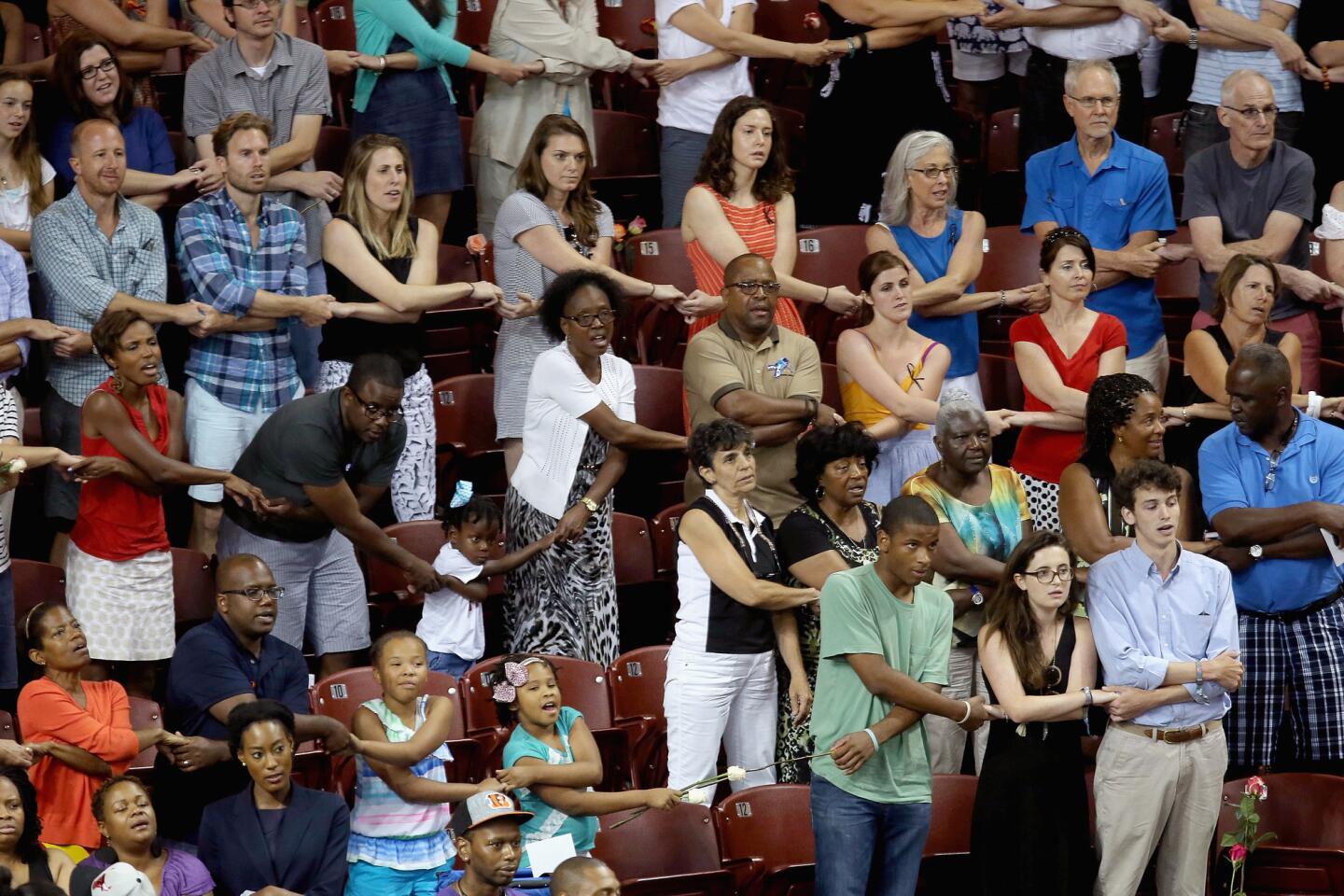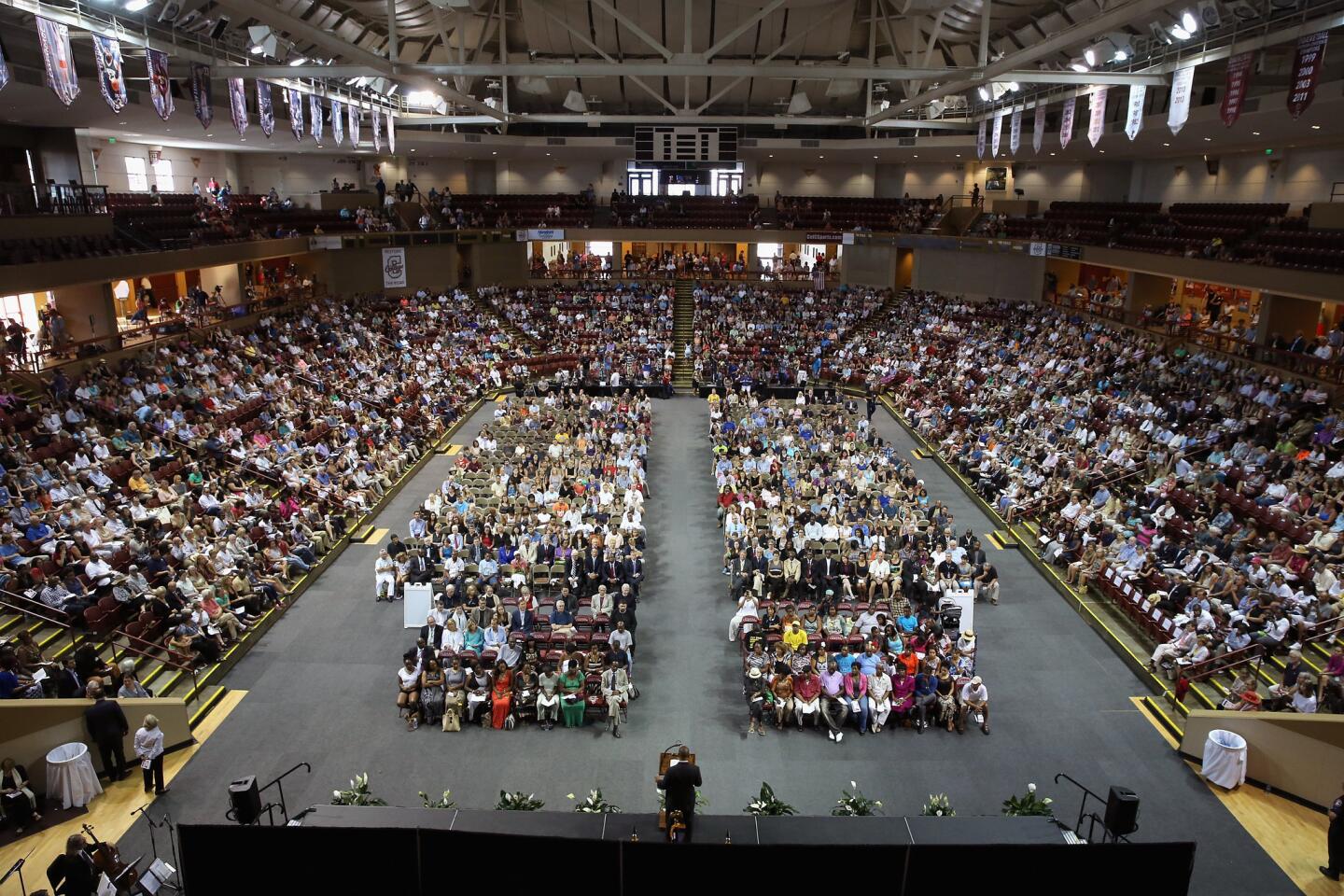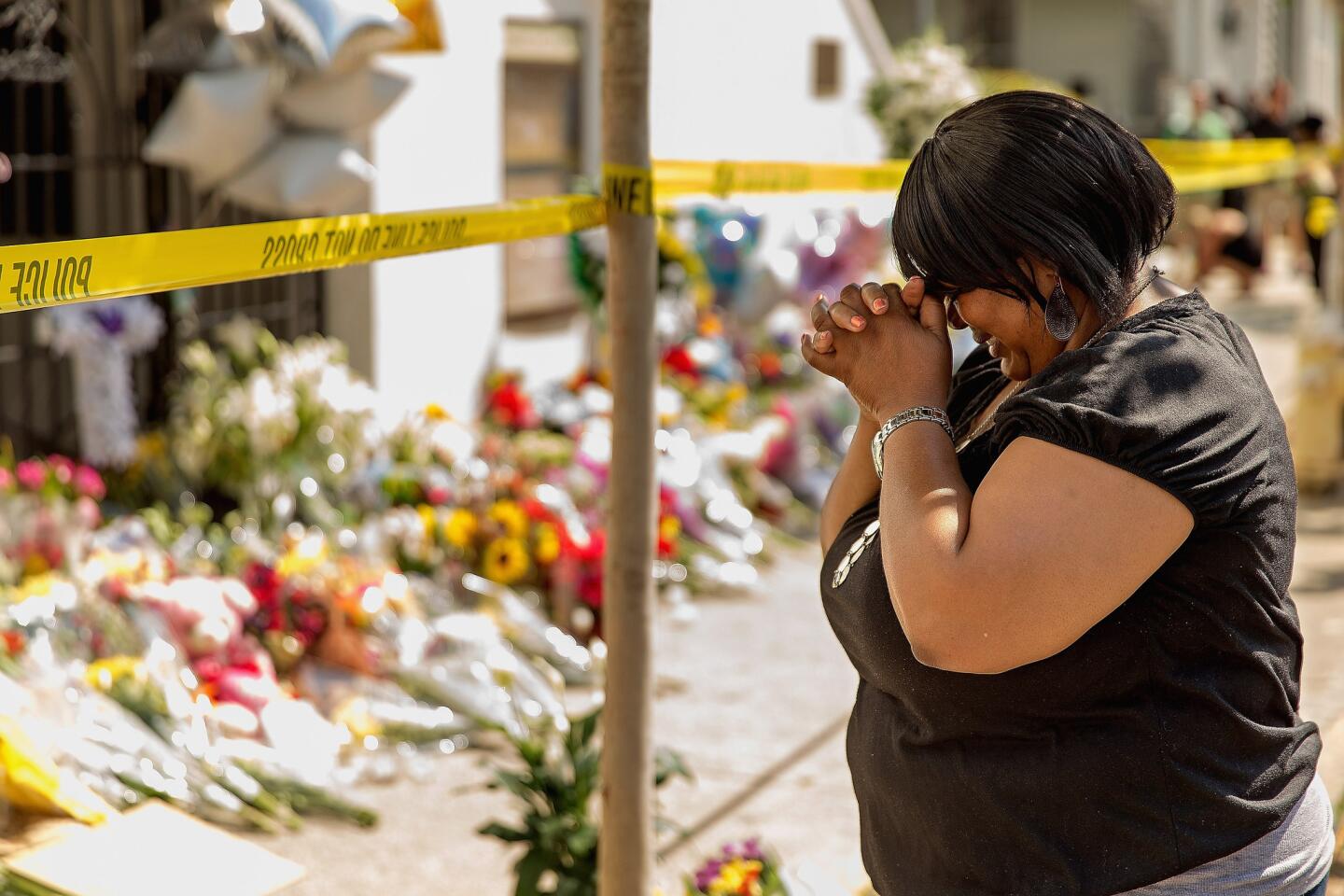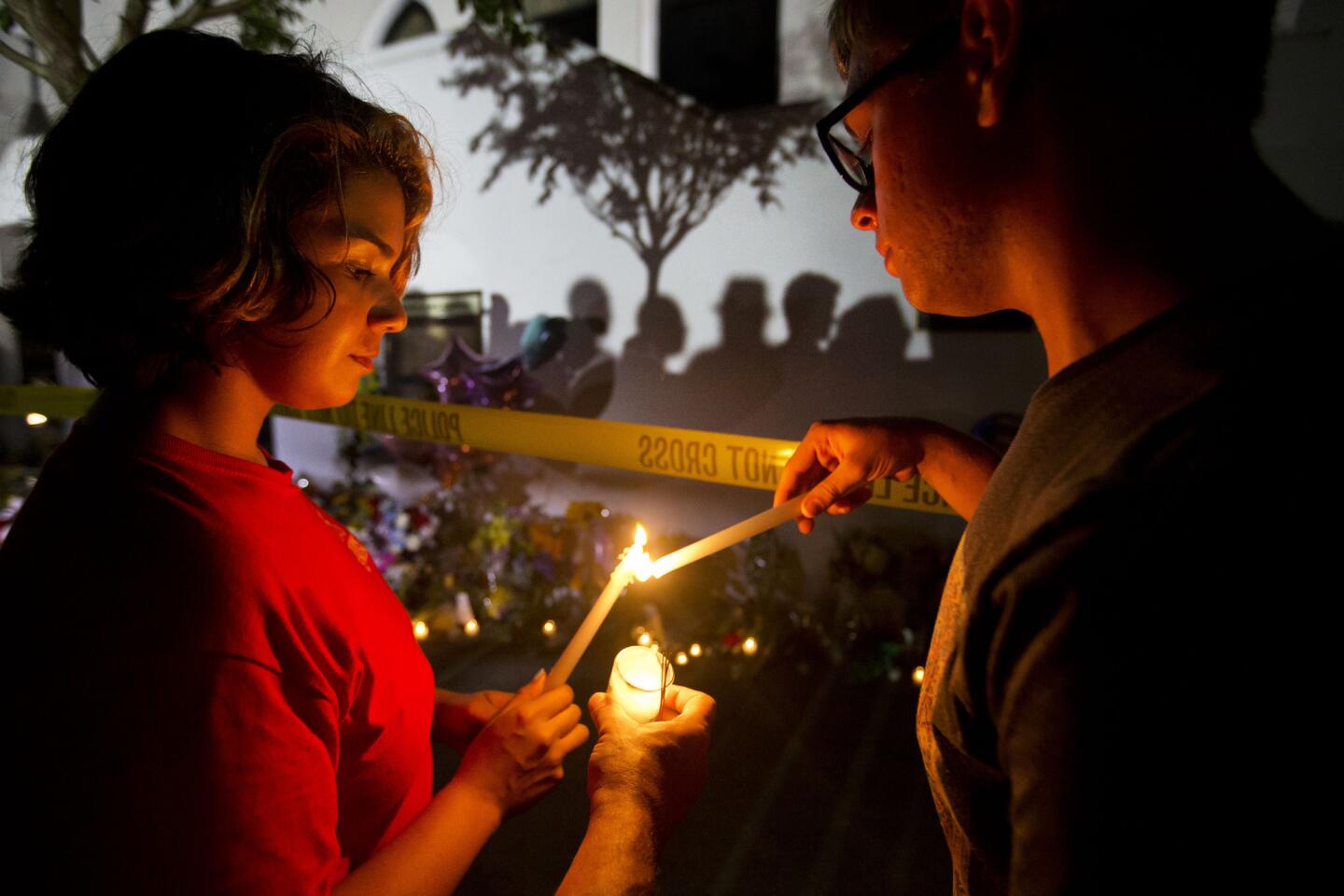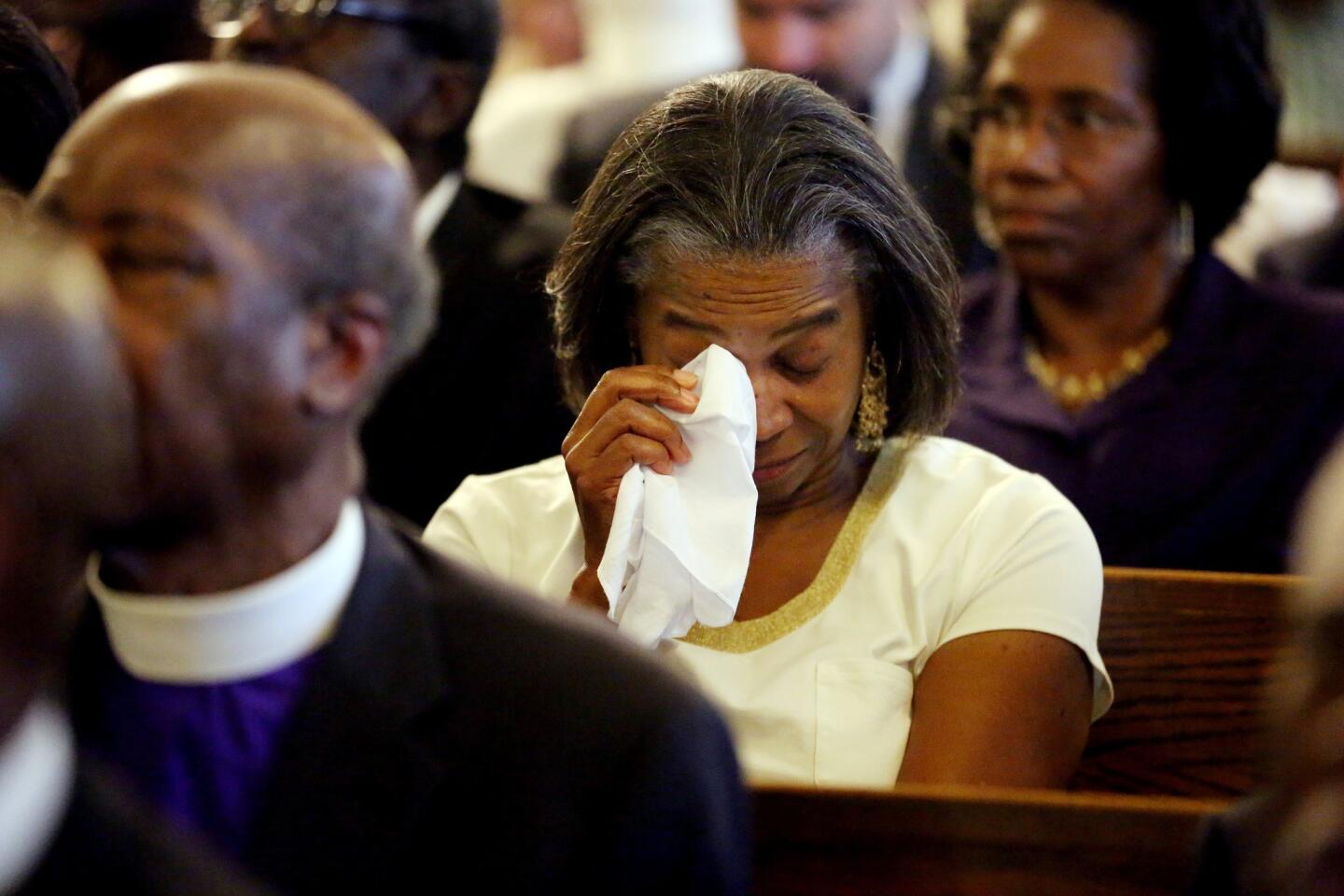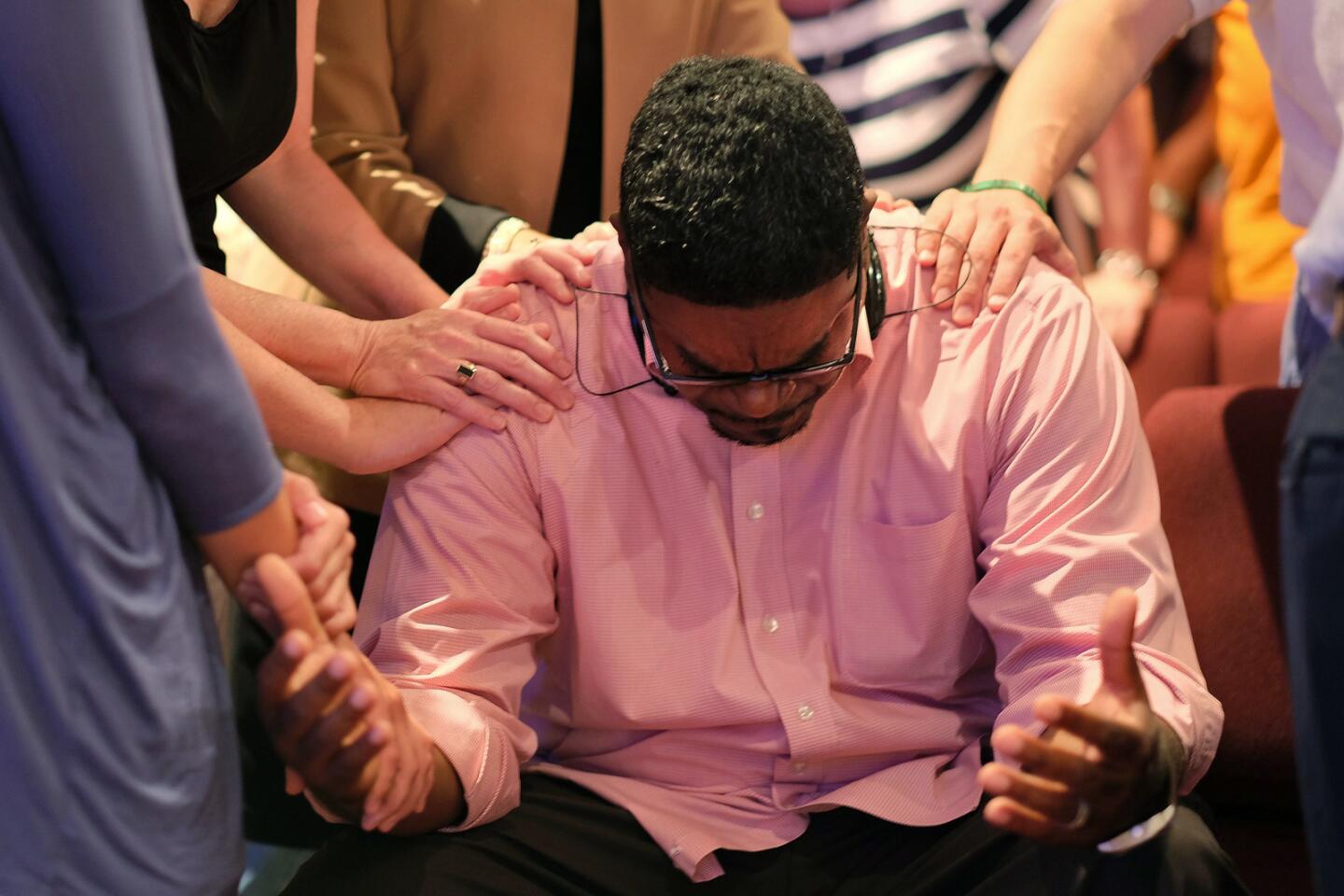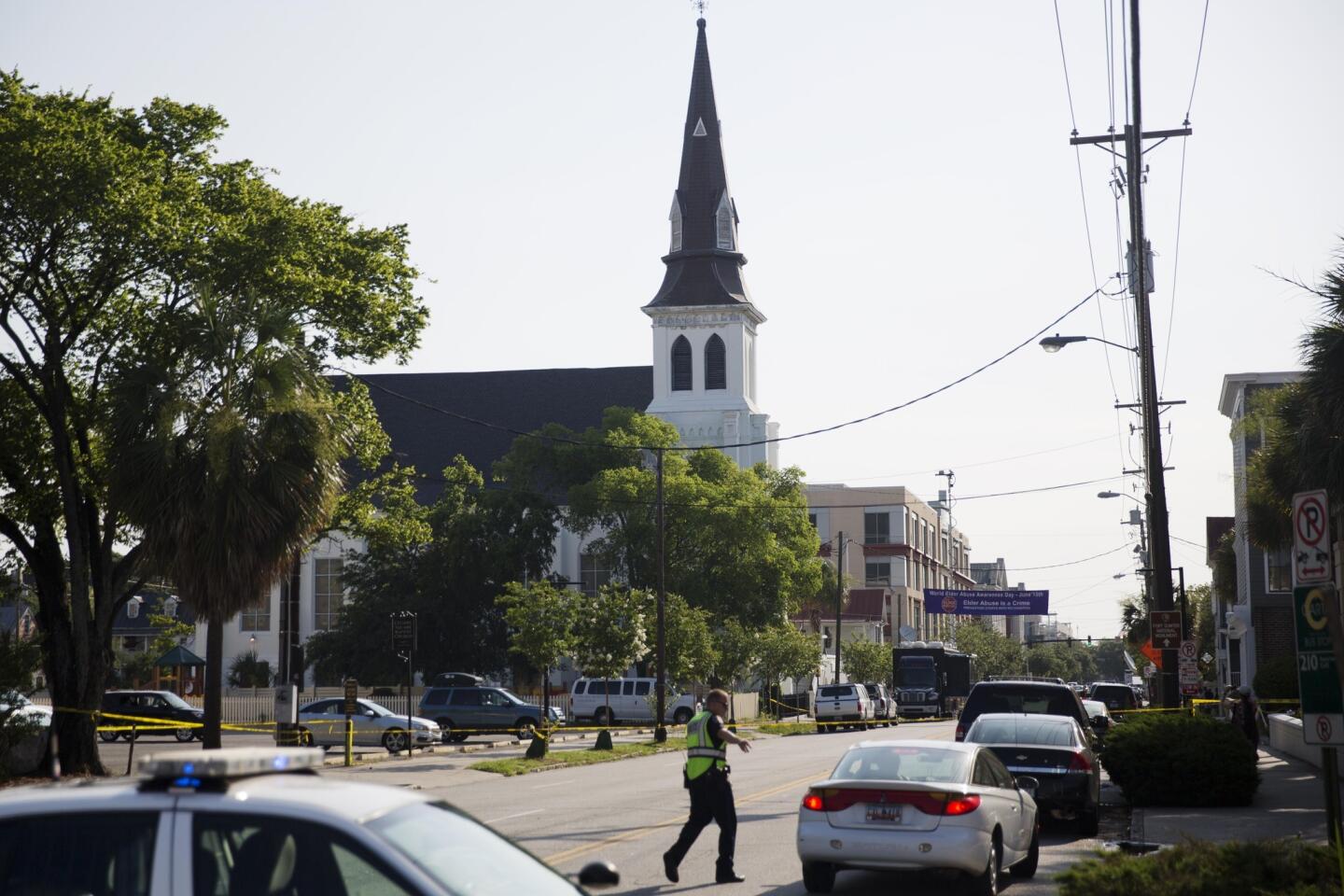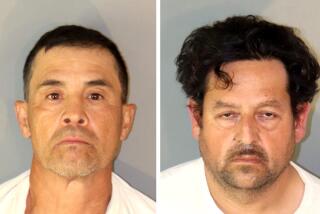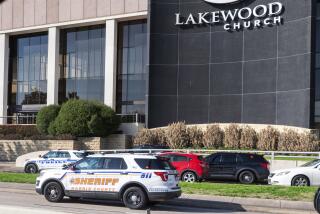Pastor, 8 others fatally shot at church in Charleston, S.C.
- Share via
reporting from CHARLESTON, S.C. — A white man opened fire during a prayer meeting inside a historic black church in downtown Charleston, killing nine people, including the pastor, in an assault authorities described as a hate crime.
The suspect attended the meeting at the church Wednesday night and stayed for nearly an hour before the deadly gunfire erupted, Police Chief Greg Mullen said.
The shooter remained at large Thursday morning and police released photographs from surveillance video of a suspect and a possible getaway vehicle. Mullen said he could not offer a make and model on the dark colored sedan because investigators were not certain about what is shown in the video.
The victims of the shooting were six females and three males, Mullen said Thursday morning. He did not give other details about the victims.
Mullen said he believed the attack at the Emanuel AME Church was a hate crime. The suspect was described as a white man in his early 20s.
RELATED: Charleston church shooting victims: Who they were
“This is a very dangerous individual,” Mullen said during a 6 a.m. news conference.
“We want to identify this individual and arrest him before he hurts anyone else,” the chief said.
Mullen said he had no reason to think the suspect has left the Charleston area, but was distributing information about him and the vehicle around the country.
Mullen said the scene at the church was chaotic when police arrived, and the officers thought they had the suspect tracked with a police dog, but he got away.
“We will put all effort, we will put all resources and we will put all of our energy into finding this individual who committed this crime tonight,” he said.
The FBI will aid the investigation, Mullen told an earlier news conference that was attended by FBI Special Agent in Charge David A. Thomas.
Charleston Mayor Joseph P. Riley Jr. called the shooting “an unfathomable and unspeakable act by somebody filled with hate and with a deranged mind.”
“Of all cities, in Charleston, to have a horrible hateful person go into the church and kill people there to pray and worship with each other is something that is beyond any comprehension and is not explained,” Riley said. “We are going to put our arms around that church and that church family.”
State House Minority leader Todd Rutherford told The Associated Press that the church’s pastor, state Sen. Clementa Pinckney, was among those killed.
Pinckney 41, was a married father of two who was elected to the state house at age 23, making him the youngest member of the House at the time.
“He never had anything bad to say about anybody, even when I thought he should,” Rutherford, D-Columbia, said. “He was always out doing work either for his parishioners or his constituents. He touched everybody.”
The attack came two months after the fatal shooting of an unarmed black man, Walter Scott, by a white police officer in neighboring North Charleston that sparked major protests and highlighted racial tensions in the area. The officer has been charged with murder, and the shooting prompted South Carolina lawmakers to push through a bill helping all police agencies in the state get body cameras. Pinckney was a sponsor of that bill.
In a statement, Gov. Nikki Haley asked South Carolinians to pray for the victims and their families and decried violence at religious institutions.
“We’ll never understand what motivates anyone to enter one of our places of worship and take the life of another,” Haley said.
Soon after Wednesday night’s shooting, a group of pastors huddled together praying in a circle across the street.
Community organizer Christopher Cason said he felt certain the shootings were racially motivated.
“I am very tired of people telling me that I don’t have the right to be angry,” Cason said. “I am very angry right now.”
Even before Scott’s shooting in April, Cason said he had been part of a group meeting with police and local leaders to try to shore up relations.
The Emmanuel AME church is a historic African-American church that traces its roots to 1816, when several churches split from Charleston’s Methodist Episcopal church.
One of its founders, Denmark Vesey, tried to organize a slave revolt in 1822. He was caught, and white landowners had his church burned in revenge. Parishioners worshipped underground until after the Civil War.
More to Read
Sign up for Essential California
The most important California stories and recommendations in your inbox every morning.
You may occasionally receive promotional content from the Los Angeles Times.
